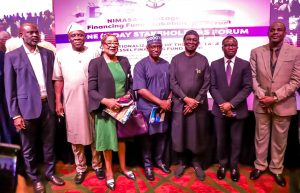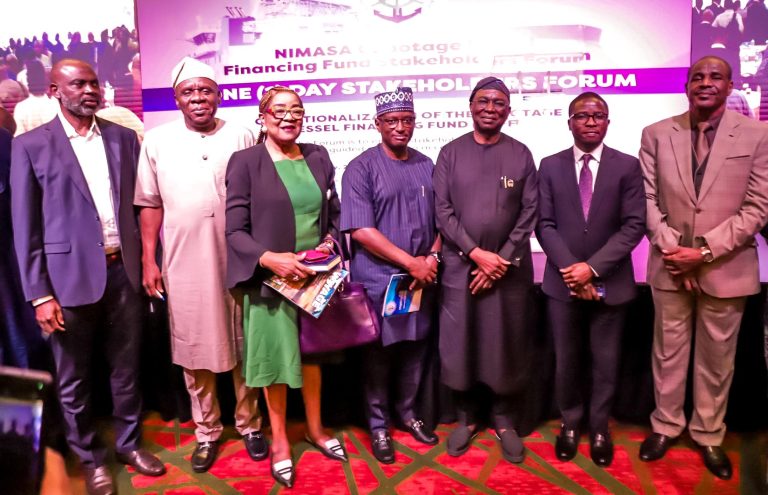… As NGO drives to strengthen the capacity of CSOs in Nigeria***
The Independent National Electoral Commission (INEC) on Tuesday launched its revised Gender Policy 2021-2026, as part of its commitment to electoral inclusivity.
The INEC Gender Policy (IPG), which was first developed in 2014, guided by the National Gender Policy (2006) and other Regional and International Instruments to which Nigeria is a signatory, has a provision for review every five years.
INEC Chairman, Prof. Mahmood Yakubu, speaking at the public presentation event in Abuja, supported by the International Foundation for Electoral Systems (IFES), described the document as a milestone achievement.
Yakubu said the policy would strengthen the commission’s capacity to engage stakeholders to take on broad gender-sensitive issues in their mainstream operational and electoral plans and actions.
Yakubu, represented by the Chairman of the Outreach and Partnership Committee (OPC), Prof. Kunle Ajayi, explained that the revised policy would further boost the commission’s electoral inclusiveness.
Yakubu, according to INEC daily bulletin issued in Abuja, commended the painstaking efforts from within and outside the commission put towards developing the revised document.
He said that the reversed policy was another successful outcome of intensive and extensive engagements with INEC stakeholders, including political parties, MDAs, development partners, gender-focused CSOs and other leading gender experts.
Harping on the premium placed on gender mainstreaming and deliberate steps taken to work the talk, Yakubu recalled that the commission in March 2021, created the Gender and Inclusivity Department.
This decision, according to him, was carefully taken by the commission to give a special focus to electoral equity, fairness and inclusion, especially the universally recognised rights of the disadvantaged groups, including women.
Yakubu said that was for them to participate in the electoral space on an equal basis by addressing the structural impediments that hinder their effective participation.
“Strategically put, with a Gender and Inclusivity Department established and a revised policy tool for intervention put in place for another five years, show the commission’s unrelenting commitment on electoral inclusion.
“This policy outlook for a seamless interface on gender-sensitive issues on the electoral process in the country could not have been more reassuring, even as the nation is gearing towards another General Election and off-season elections,” Yakubu added.
He commended IFES for providing technical support in the development of the policy and its subsequent review, saying other strategic interventions over the years have immensely enriched and stabilised Nigeria’s systems of elections and infrastructure.
INEC Commissioner, and Chairman of Legal Drafting and Litigation Committee, May Agbamuche-Mbu, described the policy as a living document.
Agbamuche-Mbu said that the policy was expected to foster gender balance in the commission and to stimulate stakeholders in the electoral process to do the same.
“It was revised to codify the commission’s gender-sensitive actions for sustainable implementation.
“The public presentation of the Revised INEC Gender Policy is an attestation by the commission to the fact that its structure and operations at all layers, both internally and in its service delivery will progressively improve.
“This is with regards to gender-responsiveness in line with global best practices,” she said.
In his goodwill message, the Country Director of IFES, Seray Jah, said the launch of the updated gender policy had set the tone for increased women’s engagement in politics in Nigeria.
Jah added that INEC and its gender and inclusivity department now have a solid document to back its financial demands and material resources to achieve women’s participation in governance and electoral processes.
“This policy handbook is a powerful accountability and advocacy tool for the Commission as well as Nigerian women and will remain a key tool to realising national development goals,” Jah said.
In another development, the Agents for Citizens-driven Transformation (ACT), an NGO, says it aims at strengthening the capacity of selected Civil Society Organisations (CSOs) to become credible drivers of change for sustainable development in the country.
Hafsat Mustapha, the group Component Manager, said this on Tuesday in Lagos, at the ongoing European Union-funded “Cross-State Regional Reflection for ACT” programme.
Mustapha said the ACT programme was based on how CSOs in Nigeria could help to translate capacity building to institutional building, as essential, to the sustainability of all NGOs in the country.
“This will also ensure accountability, which increases the legitimacy of the CSOs with a focus on evaluation and documenting results that make NGOs successful.
“ACT is basically a CSO capacity building programme which started implementation in 2019 and will end the implementation programme in 2023,” she said.
Mustapha said that such trainings would help CSOs understand the complex regulatory requirements that enable them to operate within the ambit of the law and also conform to the regulatory requirements.
“Not all organisations that are registered within the sector are registered with the intent to drive the main purpose of why NGOs are established.
“For this reason, there needs to be some kind of order within the system by helping civil organisations self regulate and make adjustments to their internal system and policy,” she said.
She said this would also help them look at their financial processes, strategy, training, and help them build capacity and advocacy on topics to engage with communities and the media.
Mustapha also called on the media to support their cause, saying, “partnering with the media is very crucial for better visibility and narrative because the media could help drive CSOs narrative effectively.
“With their coverage and reports, the people will understand why CSOs are necessary to the development of the country.
“ACT selected CSOs from Rivers and Plateau for the training based on those working on all EU thematic areas which include: health, education, resilience, climate change, nutrition, water and sanitation.’’
Mina Ogbanga, the Chief Operations Officer, River State Network of NGOs, said the impact of past trainings had enabled them to work with the government to design and pass laws that would impact the state.
“We have moved to pass the Soot Bill, which we have been part of from the point of inception to the point of assent.
“The bill is one of the things that will affect our activities in Rivers State directly and that is one of the bills we have passed.
“We are also working seriously on passing the Climate Change Bill, which has passed the first and second reading and will go through due process before assent,” she said.
Mr Duke Ogbureke, the Director, Youth Adolescent Reflection and Action Centre (YARAC), Jos, Plateau, said that ACT had strengthened its capacity to work more efficiently and effectively.
“The training has helped us to be more focused and objectively driven in service delivery and the implementation of our projects,” Ogbureke said.
Fatima Suleiman, a representative from the Islamic Council Initiative of Nigeria (ICIN), said that the training harped on the importance of documentation, evaluation, institutional strengthening, learning and sharing experience.
“We have been taught on the need to have social media engagement in whatever we do so as to disseminate effective information not only to the communities but also to the government and different stakeholders,” Suleiman said.


















